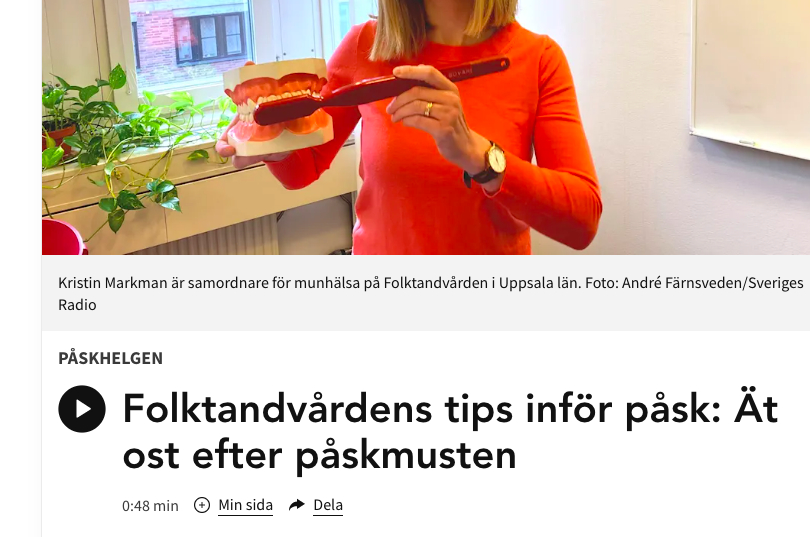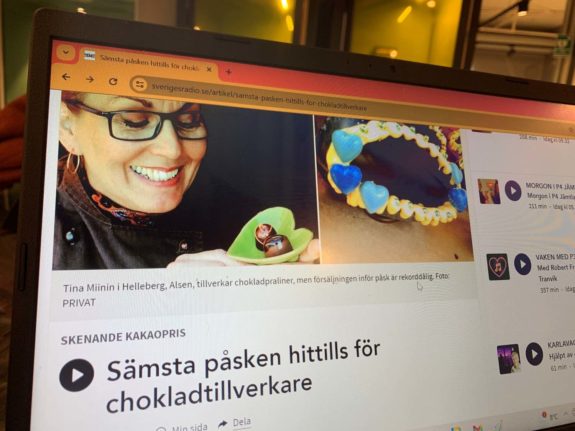Sveriges Radio this week ran a story complaining that this year is the worst ever for Swedish chocolate makers, due to skyrocketing cocoa prices after a bad harvest.
The price for cocoa, it said, has shot up from three thousand dollars to ten thousand, having knock on effects for Swedish producers.
While I’m sure the news story is accurate, it is also part of a grand Swedish media tradition: running miserable, killjoy news stories whenever there’s a sign that people might be planning to have a bit of festive fun.
The two public service broadcasters, Swedish Radio (SR) and Swedish Television (SVT) are by far the worst offenders, their reporters unusually skilled at finding a downbeat, depressing angle for every public celebration.
To give readers a sense of the genre, we’ve spent half an hour or so searching through the archives.
‘This is how dangerous your Christmas tree is’ (and other yuletide cheer)

Christmas is a time for good food, drinking a little too much, and cheery decorations to ward away the winter darkness. But have you considered the risks?
SR has.
In “This is how dangerous your Christmas tree is”, a local reporter in Kronoberg looked into the possibility that your tree might have been sprayed with pesticide, or if not, might be covered in pests you will then bring into your house.
By far the most common recurring Christmas story reflects Sweden’s guilt-loaded relationship with alcohol.
You might enjoy a few drinks at Christmas, but what about the trauma you are inflicting on your children?
In this typically festive report from SVT in Uppsala, a doctor asks, ‘why wait for the New Year to give up alcohol? Why not start before Christmas?’, while the reporter notes that according to the children’s rights charity BRIS, one in five children in Sweden has a parent with an alcohol problem, with many finding drunk adults both “alarming and unpleasant”.
God Jul!
The Swedish media finds ways to make you feel guilty about the food you eat at Christmas too. You might enjoy a slap-up Christmas dinner, but what about those who suffer from an eating disorder? SVT asked in this important, but less than cheery, story published in the run-up to the big day. “This is the worst time of the year,” Johanna Ahlsten, who suffered from an eating disorder for ten years, told the reporter.




 Please whitelist us to continue reading.
Please whitelist us to continue reading.
Member comments